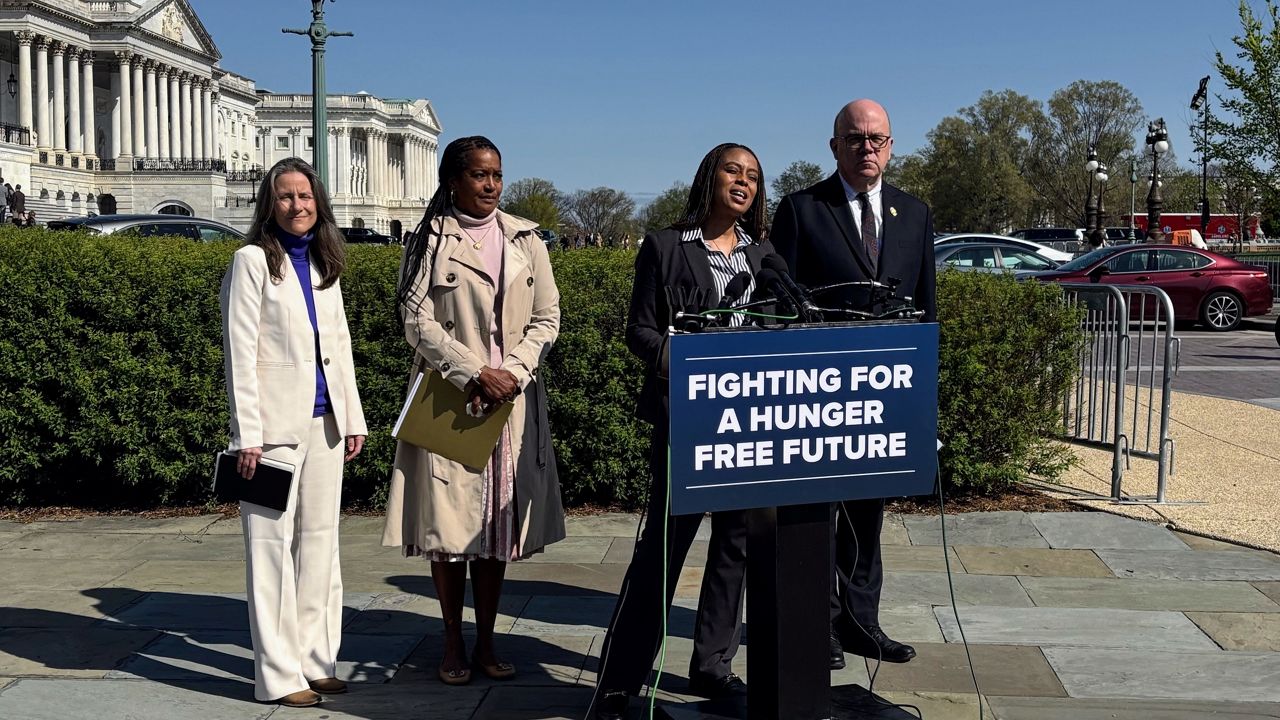COLUMBUS, Ohio — A bill was recently introduced in the Ohio House of Representatives which calls for Medicaid to cover expenses for those who need the service of doulas.
One of the organizations behind the bill has leaders with personal experiences that led them to advocate for others in this area.
Jessica Roach and Dorian Wingard have been friends for decades and have worked together for years. Roach comes from a long career in the medical field. Wingard in public policy. They teamed up in 2017.
"I knew that he had some of the same ideals that I did in regards to family and the foundations of black family and what it was that we needed to do to address maternal infant health," said Roach.
The issue has touched both of their families. Jessica, a mother of three, gave birth to a preterm baby. Dorian, himself, was born prematurely. Roach said the one thing she, Dorian's mom and other Black women are often told is they will have high-risk pregnancies, simply because they are Black.
"There was commentary about how we don't really know why this has happened. We just know that this happens more frequently to black women," Roach explained.
"All of the conditions that led to that birth outcome could have been prevented and they weren't," said Wingard.
"I knew at that point I never really wanted to see happen with anyone else," said Roach.
So they decided to get to work on what they feel is the root of the issue. Hence why they named their company Restoring Our Own Through Transformation (ROOTT).
"This has been a situation that we have been dealing with for a very long time and the unfortunate part of that is that the discussion always seems to have a basis in race versus the understanding of racism within institutions," said Roach who is the company's chief executive officer.
ROOTT is a Black-led reproductive justice organization dedicated to collectively restoring the well-being of Black families.
"We wanted to have us taking care of us and we do that through a multitude of ways," Roach said.
Most notably through perinatal support doula services. Typically, a doula provides emotional, physical and social support for pregnant woman while they are giving birth or postpartum. ROOTT's doulas are not only there for the birth but also throughout the entire prenatal and extended postpartum period. The numbers suggest ROOTT's formula is working.
"Our organization has a 0% Black maternal and infant mortality rate," Roach emphasized.
You may be wondering how ROOTT is able to achieve this feat especially when, according to the CDC, the risk of pregnancy-related deaths for Black women is three- to four-times higher than white women. Also, Ohio ranks No. 21 out of 50 states in terms of highest mortality rates.
"We're paying attention to our families. We're respecting our families. We're treating them with humanity. We're not making presumptions about their status or their fitness for being a parent or carrying a baby. And the fact that we look like the families that we serve," explained Wingard, ROOTT's chief operating officer.
Roach and Wingard mainly focus their efforts in central Ohio but they would like the system changed statewide. That is why they are working with State Rep. Erica Crawley (D-Columbus), who first introduced a bill to have Medicaid cover doula services in the last general assembly. It has been reintroduced and beefed up to include a four-year pilot program and a doula advisory board to be overseen by the Ohio Board of Nursing among other things.
"It would provide a formalized vehicle for us to be able to begin training even more, certifying even more folks," said Wingard.
"We're very aware that we are not the only people that are doing this work and we're also very aware of the fact that it's going to take all of us in our various areas and aspects of the work that we do to be able to accomplish and address the concerns of our community," said Roach.
House Bill 142 has been referred to the House Health Committee and is awaiting its first hearing. The expected cost of the program is $14 million per year with services being capped at $2,500 per pregnancy. The federal government would reimburse the state up to 63%.










